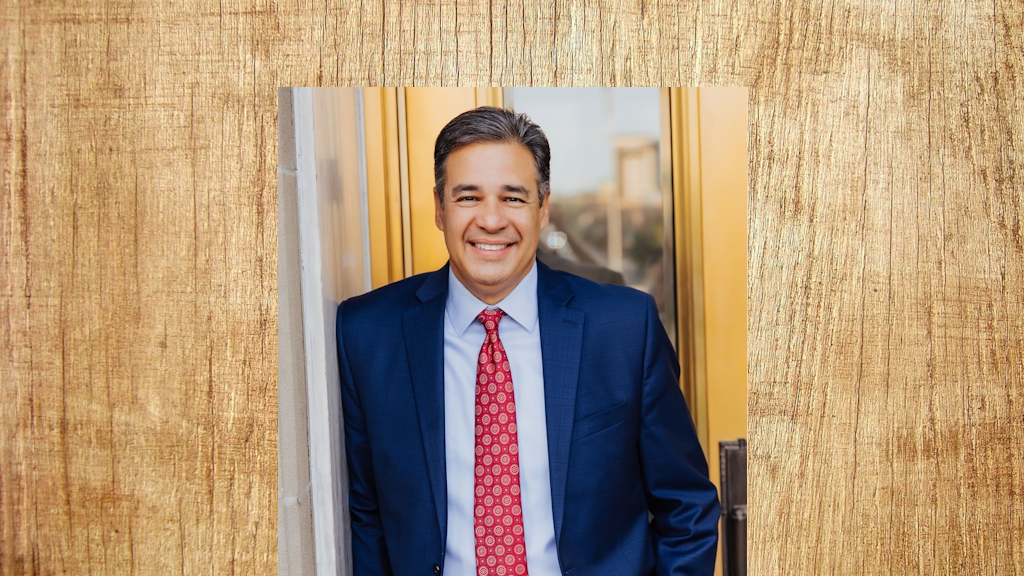By Raúl Labrador
Dear Friends,
I recently had an opinion piece published by Deseret News on the immigration crisis, and thought I’d share it with you.
Beyond Borders
For over a decade, I practiced immigration law. As someone born in Puerto Rico who was raised by a single mom, I lived the American dream, and it brought me great joy to help clients secure their chance to achieve it.
When I represented Idaho in Congress, I continually promoted the importance of legal immigration and the need to modernize our immigration system. But as I’ve watched the crisis at the border grow worse and worse over the last four years, it’s become clear to me that the American dream is in peril.
There is good news, however, and it may come as a surprise: We don’t need Congress to pass new legislation to restore the integrity of our immigration system. The laws are already on the books.
In my work as an immigration lawyer, a congressman and now as the Attorney General of Idaho, I know Americans want a fair and effective system of immigration. They understand the value of the entrepreneurs and hard workers who enrich and renew America’s promise. But the cornerstone of an effective system of immigration begins with securing the border and protecting American citizens.
Increasingly, citizens believe the federal government is failing in this duty. According to a CBS News poll released earlier this year, fully 70% of Americans disapprove of the way the current administration has handled immigration.
During my legal practice, I relied on the Department of Homeland Security to uphold the law to ensure my clients were provided with due process and could navigate the legal system. In my later congressional role, I likewise relied on this same department to guarantee I could introduce meaningful legislation to amend our laws and improve our immigration system. But today many doubt the federal government is willing to uphold the laws already on the books when it comes to protecting the border.
The pictures along the border of Texas capture the enormity of the crisis. More than 7 million foreign nationals have been encountered at the border and countless more illegally entered the United States since January 2021. The cost of illegal immigration falls disproportionately on states like Texas. It’s reasonable that Texas and its citizens would want to take action. Yet as the state has recently acted to secure its border, this action was blocked in the courts at the request of the federal government.
It’s little wonder that no less than 14 governors recently went to the Texas border to make the case that the federal government must live up to its duty to protect and secure the border. As someone with decades of experience in this area, I don’t think it’s hyperbole to say the Biden administration is presiding over one of the worst immigration crises in our nation’s history.
And yet, the current confrontation in Texas is just the latest in a long line of actions that have fed the crisis. Border fencing comes on the heels of multiple lawsuits against the administration filed by Texas and a host of other states, including my home state of Idaho and its neighbor Utah. The goal of this litigation is simple — to ensure the administration follows the law as Congress has prescribed.
Attorneys general from all over the country, including me, have signed their names to complaints asking the court to stop unlawful immigration policies and to compel the administration to act as required by law. Texas’ attempt to control its borders constitutes lawful state action to further a compelling interest, especially when considering the cost of illegal immigration. As Texas is ground zero for many who enter the country illegally, the unpredictable influx wreaks havoc on state and local budgets.
Resources dedicated to public safety and public health are stretched thin and those who settle in the state and utilize the public school system are not accounted for in annual budgets. The results are a diminishing ratio of tax dollars per each student, longer waits in emergency rooms and insufficient municipal services to cover an ever-growing population. The country was stunned when New York City was forced to cancel classes at some area schools due to migrant housing, yet Texas has balanced these competing interests every day for over three years.
Federal litigation to staunch the bleeding is critical, but justice moves slowly. As conditions along the southwest border continue to deteriorate, Texas asserted a right to protect its borders. This, of course, is the federal government’s responsibility. But what is a state to do if it has reason to believe it’s failing in this duty?
The month prior to the administration acting to block this more proactive state response, the Department of Homeland Security announced the southwest border saw over 302,000 border encounters in December 2023 — a new record.
Since President Joe Biden’s inauguration, Customs and Border Protection has encountered more than 7 million foreign nationals at or between the ports of entry, with hundreds of thousands of others successfully eluding U.S. Border Patrol. During fiscal year 2021, Customs and Border Protection also saw a marked uptick in border rescues with more than 12,000 individuals requiring medical assistance. That nearly doubled to more than 22,000 in fiscal 2022, before exceeding 37,000 in fiscal 2023.
Perceptions matter, and the prevailing perception is that the United States is effectively opening the door to entrants at and between the ports with lax border policies. But the laws passed by Congress outline what the federal policy should do: protect and secure the border.
Illegal immigration has long been a concern and Congress has taken action with amendments to the Immigration and Nationality Act and other independent bills. In 2006, for example, Congress — including “yes” votes from then-Sens. Biden and Barack Obama — passed the Secure Fence Act. This bipartisan legislation defined operational control of the border as the “prevention of all unlawful entries into the United States.” With this mandate in effect, it remains deeply confusing to witness executive orders on immigration directing relevant agencies to find ways to apparently remove barriers to illegal entry.
Operational control, as defined, may be aspirational, but prior to the pandemic, then-President Donald Trump’s Department of Homeland Security used every lawful tool available to achieve it. Utilizing statutory authority such as the Remain in Mexico program and creating bilateral agreements with Central American partners, individuals attempting to enter the United States no longer found a guaranteed free pass to indefinite residence. They were stopped, given due process as required under law, and were either granted the ability to remain legally in the United States or were quickly removed.
Biden’s approach to the situation is a significant departure from the statutory definition of operational security. His Department of Homeland Security, for example, halted all deportations for at least 100 days in the early days of his administration. Through the use of regulatory amendments, the administration also broadcast its position that all those entering the country at the southwest border were valid asylum applicants. The White House likewise invited more illegal immigration to our borders by reassigning certain authorities and making broad-based changes to the law. The resulting changes were in direct conflict with federal law and with the standard operations at the border and have further destabilized the situation.
While few would deny that the immigration system needs improvements, the Biden administration has over-relied upon “broken immigration system” rhetoric while overseeing the largest continuous rush of illegal immigration in our nation’s history. The president has made it overwhelmingly clear that our borders are open, that those entering the country illegally will be rewarded, and that those that enter and remain in the United States illegally will face no consequences.
So, what is the answer? Laws can always be amended and improved, but passing new legislation means nothing if the executive branch refuses to follow either the letter or the spirit of the law. It’s time to step back and let core principles be put into play — including a respect for the rule of law, the role of the federal government to secure its borders, and the role of states to protect their citizens.
Many are unaware that a system exists to quickly process individuals at the border, which includes a near-immediate, initial evaluation of any claims for asylum. But according to a recent report by the House Judiciary Committee, this process is used only sparingly, for approximately 6% of individuals encountered.
These congressional findings, combined with a lax posture toward the law, suggest new legislation granting additional executive authorities is not the answer. While our immigration laws are not perfect, and most sensible Americans are in favor of updating them, what we need now is greater border security. And in the absence of congressional action or judicial accountability, it falls on the states to ensure that their citizens are secure. That’s why I, and so many others, are standing with the state of Texas in its efforts to protect Americans.
Raúl Labrador was elected Attorney General of Idaho after serving three terms in the Legislature and four terms in the US Congress. The Attorney General’s Office provides legal representation to the State of Idaho. The Attorney General and his deputies represent state agencies and offices to better the lives of Idahoans.
About Raúl Labrador
Raúl Labrador is the 33rd Attorney General of Idaho. The Office of the Attorney General provides legal representation for the State of Idaho. This representation is furnished to state agencies, offices and boards in the furtherance of the state's legal interests. The office is part of state government’s executive branch and its duties are laid out in the Idaho Constitution.













